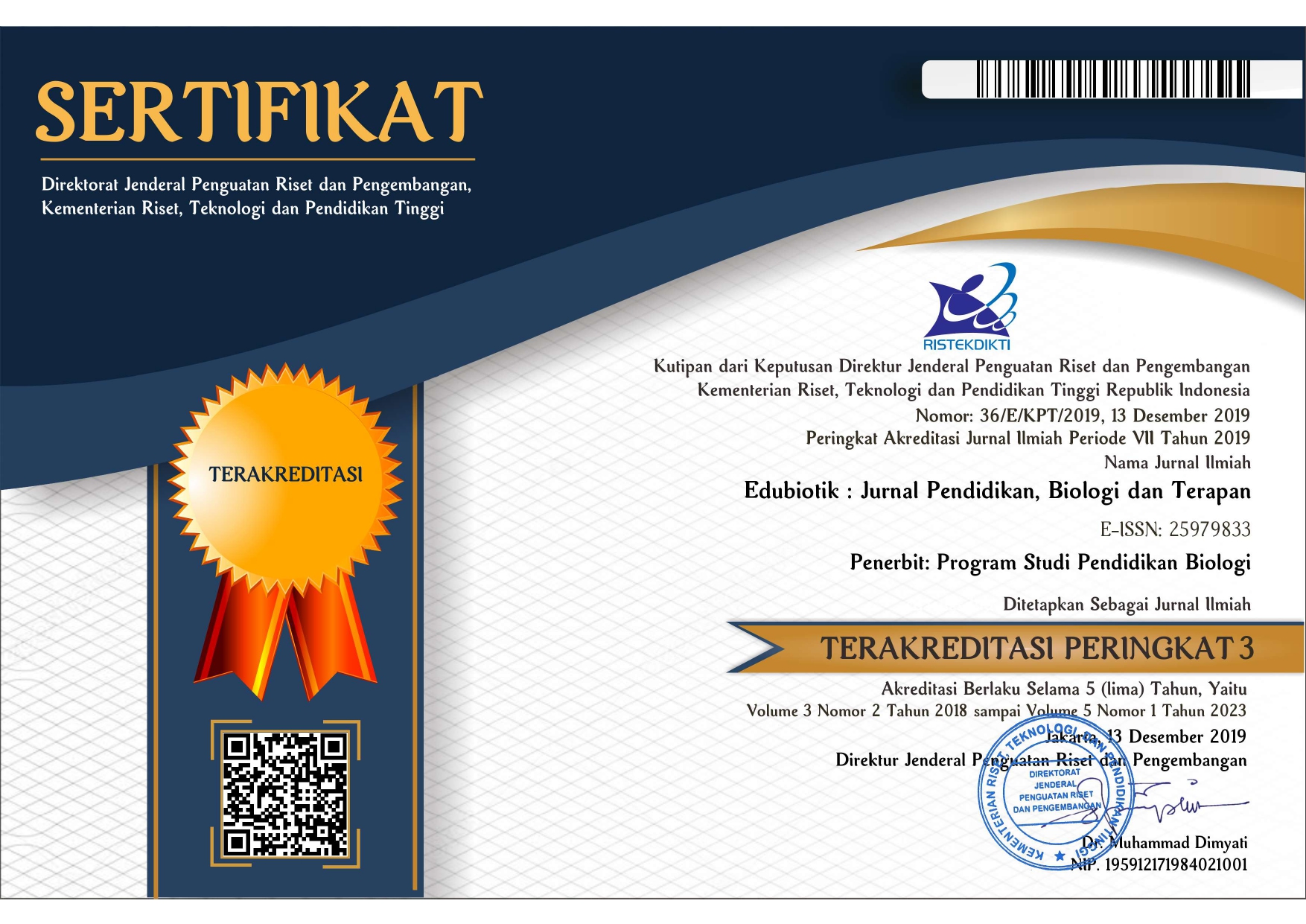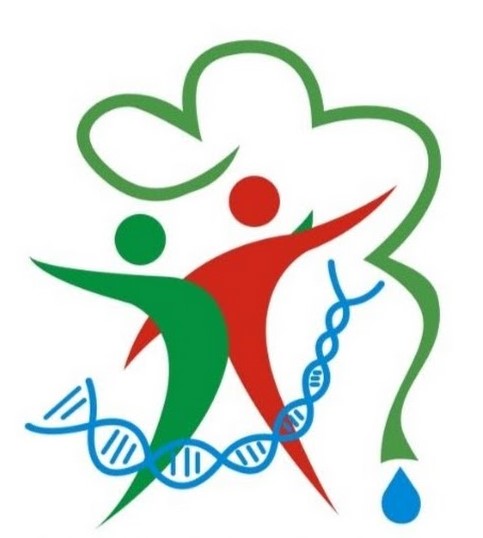Development instrument science process skills biology for Junior High School
Abstract
Science process skills (SPS) are basic skills in science and tools of a scientist to investigate science phenomena. One of the ways to improve science process skills is by giving students practice questions. This study aims to develop a valid and reliable science process skills instrument. The research is developmental research using a procedural model adapted from Djaali and Muljono. These steps include the theory synthesis stage, the design stage (variable construction, development of question indicators, preparation of grids, making instruments, scoring), and the evaluation stage (validity test, reliability test, and item analysis). The research instruments used were expert validation sheets, practitioner assessment questionnaires, and product trial questions for 100 students. The results of judgment expert and practitioner judgment were processed descriptively. The empirical validity results, which are quantitative data, are processed using the software Microsoft Excel. The results showed that the developed questions were valid based on logical validity (89.43%) and empirical validity (84%). The reliability calculation shows the high category (0.66). This study concludes that the SPS questions developed are feasible to assess the process skills of biology subjects at the junior high school level.
References
Arifin, Z. (2017). Kriteria instrumen dalam suatu penelitian. Jurnal Theorems (the Original Research of Mathematics), 2(1), 28–36. Retrieved from https://www.neliti.com/
Arikunto, S. (2013). Dasar-dasar evaluasi pendidikan (2nd ed.). Jakarta. Bumi Aksara.
Djaali, & Muljono, P. (2008). Pengukuran dalam bidang pendidikan. Jakarta. Grasindo.
Fadillah, E. N., & Angraini, E. (2018). Pengembangan modul praktikum genetika berbasis keterampilan proses sains untuk mahasiswa Program Studi Pendidikan Biologi. Edubiotik : Jurnal Pendidikan, Biologi Dan Terapan, 3(01), 34–42. https://doi.org/10.33503/ebio.v3i01.77
Jalil, S., Herman, Sidin Ali, M., & Haris, A. (2018). Development and validation of science process skills instrument in physics. Journal of Physics: Conference Series, 1028(1). https://doi.org/10.1088/1742-6596/1028/1/012203
Karamustafaoğlu, S. (2011). Improving the Science Process Skills Ability of Science Student Teachers Using I Diagrams. Eurasian J. Phys. Chem. Educ, 3(1), 26–38. Retrieved from http://www.eurasianjournals.com/index.php/ejpce
Lestari, S., Rosilawati, I., & Kadaritna, N. (2016). Pengembangan Instrumen asesmen keterampilan proses sains pada materi garam hidrolisis. Jurnal Pendidikan dan Pembelajaran Kimia, V(3), 87–98. http://jurnal.fkip.unila.ac.id/index.php/JPK/article/view/11962
Maison, Darmaji, Astalini, Kurniawan, D. A., & Indrawati, P. S. (2019). Science process skills and motivation. Humanities and Social Sciences Reviews, 7(5), 48–56. https://doi.org/10.18510/hssr.2019.756
Natar, K. (2011). Panduan analisis butir soal. Lampung. UNILA PRESS.
Purwanto, N. (2013). Prinsip-prinsip dan teknik evaluasi pengajaran. Bandung. PT Remaja Rosdakatya.
Ramadhani, D., Susanti, R., & Zen, D. (2015). Pengembangan soal keterampilan proses sains pada pembelajaran biologi SMA. Jurnal Pembelajaran Biologi: Kajian Biologi Dan Pembelajarannya, 2(1), 96–108. https://doi.org/10.36706/fpbio.v2i1.4727
Rosana, D., Ramadani, M., & Dewi, K. (2017). The instrument for assessing the performance of science process skills based on nature of science (NOS). Cakrawala Pendidikan: Jurnal Ilmiah Pendidikan, 36(3), 435–445. https://doi.org/10.21831/cp.v36i3.14731
Rustaman, N. (2005). Stragtegi belajar mengajar biologi. Malang. Universitas Negeri Malang.
Sudjana, N. (2009). Penilaian Hasil Proses Belajar Mengajar (p. 168). Bandung: PT Remaja Rosdakatya.
Turiman, P., Omar, J., Daud, A. M., & Osman, K. (2012). Fostering the 21st century skills through scientific literacy and science process skills. Procedia - Social and Behavioral Sciences, 59, 110–116. https://doi.org/10.1016/j.sbspro.2012.09.253
Wahyuni, S., Indrawati, I., Sudarti, S., & Suana, W. (2017). Developing science process skills and problem-solving abilities based on outdoor learning in junior high school. Jurnal Pendidikan IPA Indonesia, 6(1), 165–169. https://doi.org/10.15294/jpii.v6i1.6849
Yamtinah, S., Masykuri, M., Ashadi, & Shidiq, A. S. (2017). An analysis of students’ science process skills in hydrolysis subject matter using testlet instrument.. Advances in Social Science, Education and Humanities Research (ASSEHR)(, 158(December). https://doi.org/10.2991/ictte-17.2017.36
Yani, A., Asri, A. F., & Burhan, A. (2014). Distraktor soal ujian semester ganjil mata pelajaran produktif di SMK Negeri 1 Indralaya Utara. Jurnal Pendidikan Teknik Mesin, 1(2), 98–115. Retrieved from https://ejournal.unsri.ac.id/index.php/ptm/article/view/7410





.png)
2.png)

1.jpg)


